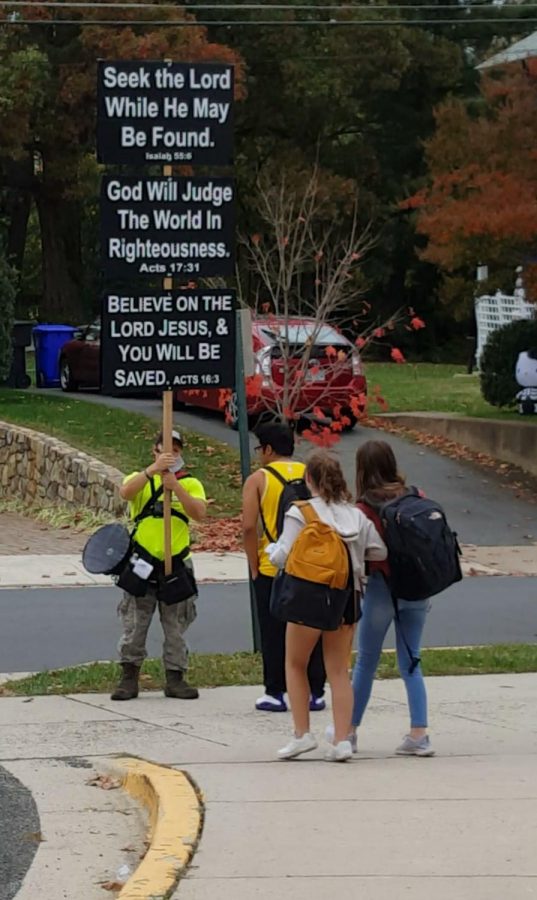The definition of harassment
The definition of harassment changes from person to person. Some students see harassment as an intentional attack, while others perceive it to be any form of harmful content, intentional or no. Over the years, the school’s gotten several protests. These protests sparked the question of what counts as harassment, and what do students think about the issues being protested and the protests as a whole.
When students were asked what they believed the word harassment meant, answers varied. While a lot of them sounded similar, a key difference in most was whether or not it could be unintentional.
“Harassment is the violation of [a] person’s comfort zone. Harassment is the act of putting someone out of their comfort zone, whether that mean[s] verbal means, physical means, or sexual means. I don’t think it’s always intentional, [but] I still think it’s harassment if it’s unintentional,” sophomore Zayd Kouar said.
The majority of students could agree that harassment is a form of torment, or invasion of someone’s comfort zone. Most of their descriptions fell into the same model. When it came to intentionality, however, a few disagreed. Junior Katya Schafer was more underneath the belief that, if unintentional, it didn’t count.
“[Harassment is] being touched or told something that was non-consensual, or made you uncomfortable. It has to be on purpose, or it’s not harassment,” Schafer said.
When it comes to the protests, students were more conflicted on whether or not it counts as harassment, or what they want to be done about it. The two main points that came up most were whether or not this kind of protesting counts as harassment, and if people should protest on school grounds at all.
“Especially with the cases where they were saying these awful things to these poor teenagers. It disgusted and angered me, and it made me sad to think about,” junior Conor Hogan said. “I think it was very inappropriate to congregate outside the school.”
When it came down to it, most of them came to the consensus that while some protests can be beneficial, they shouldn’t protest on school grounds. In general, the goal of protesting is fine, but the way it affects highschoolers and the way these protestors went about it was out of the question. Sophomore Alex Hemel summarized it best.
“I think that they should be allowed to protest, because it’s their opinion. I think they should probably stay off school property when they do it, though, because we’re kids, and someone could take that stuff the wrong way.”













